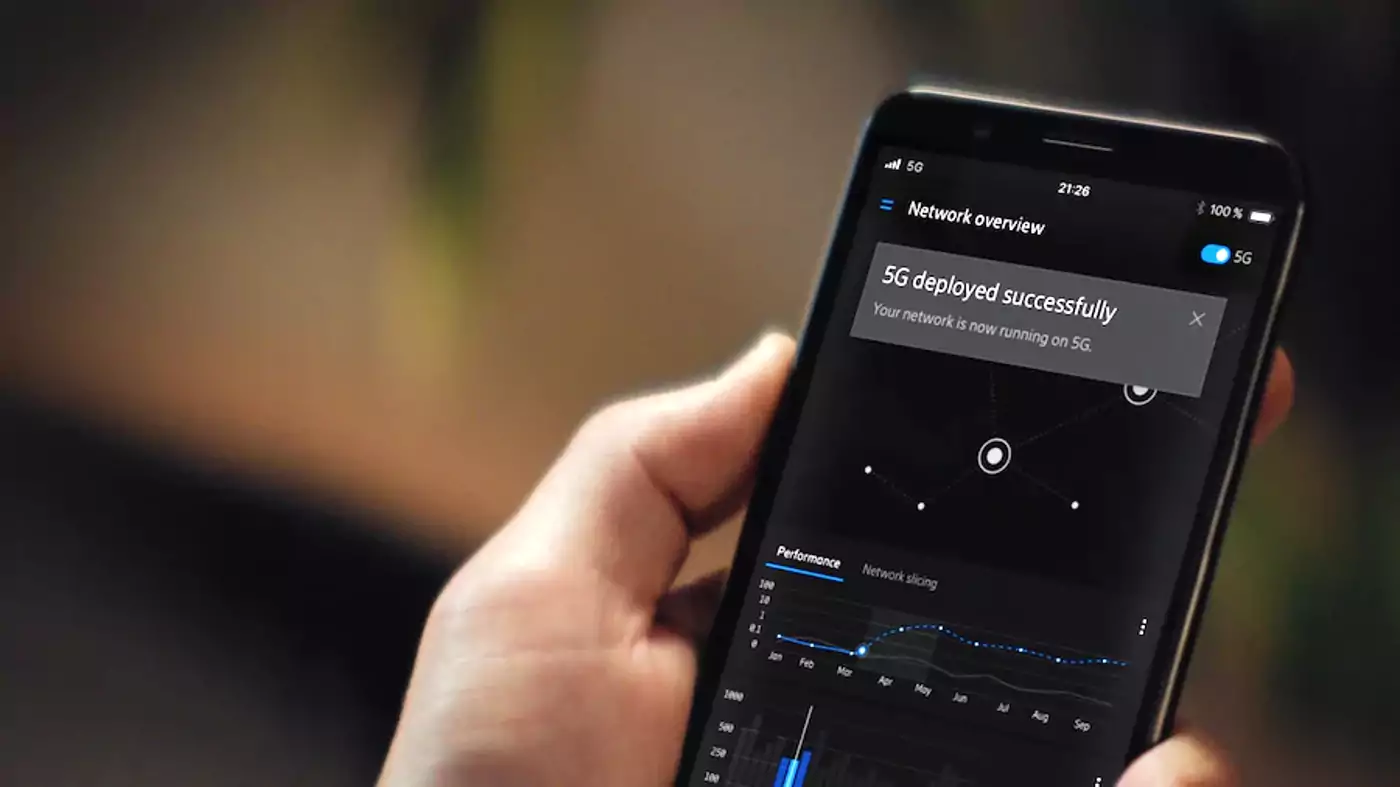Ericsson, Telefónica and Samsung have achieved a proof-of-concept (PoC) project for 5G interactive calling, built on the IMS data channel standard and using Ericsson Cloud IMS network capabilities.
Telefónica led the definition of services with Samsung implementing the technology natively in its Galaxy S21 series.
This capability enables the addition of real-time, remote interaction between people and things, through a regular mobile phone call. With this new 3GPP-based technology, we believe that the communication service provider (CSP) telephony service could be used for more than just basic voice.
The PoC included use cases that demonstrate how the service could function on future commercial 5G smartphones. This groundbreaking technology offers consumers access to screen sharing, gaming and social collaboration within a regular phone call, while consumer-to-business and business-to-business calls will be able to provide better digital experiences through increased efficiency.
For example, with remote expert support in business contact centres, the callers could start by interacting with the businesses’ call screen menu content while waiting in the phone queue. During the phone conversation the customer support agent could provide better product and service advice using screen-sharing and content collaboration directly within the call screen. In the future augmented reality (AR) could also be added to further enhance the customer support experience.
Cayetano Carbajo, Director for Core, Transport and Service Platforms, Telefónica CTIO, says:
“We are constantly working on developing new 5G innovations and future communications services are a priority area for us in 5G. We are now co-developing and testing 5G interactive calling together with Ericsson and Samsung, among other partners.
This could bring new capabilities to 5G voice calls in the future which will benefit our consumer and enterprise customers.”
This concept and 3GPP-standardized technology enabler, IMS data channel, are part of Telefónica and Ericsson’s shared vision for a 5G connected world where services like collaboration, AR and other services are part of a regular voice call.
Adding interactivity and sharing capabilities within high-quality voice calls will make them more convenient for the users and remove the need for separate apps that have to be downloaded, maintained and secured.
Gwang-Hyun Gho, Vice President and Head of Communication Processor R&D, Samsung Electronic says:
“We are excited to be a part of the initiative to develop new 5G voice capabilities using IMS data channels. We look forward to continue paving the way in 5G innovation to meet our customer’s highest standards by collaborating with industry partners.”
CSPs can continue using and improving the voice networks they have already deployed for billions of users across the globe, by leveraging the inherent telephony network values with easy find-and-connect with anyone that has a phone number, quality-of-service, reliability, seamless mobility and security.
The successful PoC is bringing the technology closer to a commercial service, by demonstrating how this service could be introduced on future 5G smartphones.
David Bjore, Head of Solution Area Communication services at Ericsson says:
“We have during the past years been working on bringing voice services to the 5G era, by building a new 5G 3GPP-standards-based technology enabler, IMS data channel, which could be used for many different types of real-time interactive voice services in the future.
With this proof-of-concept together with Telefónica and Samsung, the next major milestone has been achieved by showcasing the technology and example use cases on 5G smartphones.”
The interactive calling service is using the technology enabler IMS data channel which has been included in the 3GPP 5G standards release 16. The technology is still in the innovation phase and Ericsson is now building and exploring it in collaboration with companies like Telefónica and Samsung to enable future commercial 5G and 4G voice services.
The technology could be used for many different consumer and enterprise use cases in the future, and future devices beyond smartphones could also be enabled with these capabilities.
Demonstrations of different use cases will be shown at Mobile World Congress in Barcelona.
5G Voice
5G voice is the regular mobile phone call service that service providers offers on 5G smartphones. This may sound very basic, and from a user point of view it is, you make voice calls on your new 5G devices like you have always done on your mobile phone. But for a service provider, there are a lot of mobile network evolution aspects to consider behind the scene, to secure a high-quality mobile voice service everywhere.
To enable service provider voice calls on 5G smartphones and other 5G devices, the network infrastructure used for 4G voice (VoLTE) today will also be used to enable 5G voice calls.
In 5G, the default voice codec in 5G smartphones enables “HD voice+”, using the 3GPP standardized Enhanced Voice Services (EVS). EVS can already be used in 4G networks, but is not mandatory.
It provides a greater voice quality experience than what narrowband voice and HD voice provides today in 2G to 4G networks. It also provides better sharing of music within a voice call, for example music announcements when queuing at the help desk, or if you share music from a concert you are attending.
5G Voice Benefits
Benefits for users· Improved speech quality with HD voice+
- Improved video calling quality
- New voice and communication services
- Simultaneous voice calls and 5G data services
Benefits for service providers
- Satisfy early 5G adopters – all smartphones with 5G data speeds also require voice services
- New revenue from 5G-specific voice and communication services for enterprises



